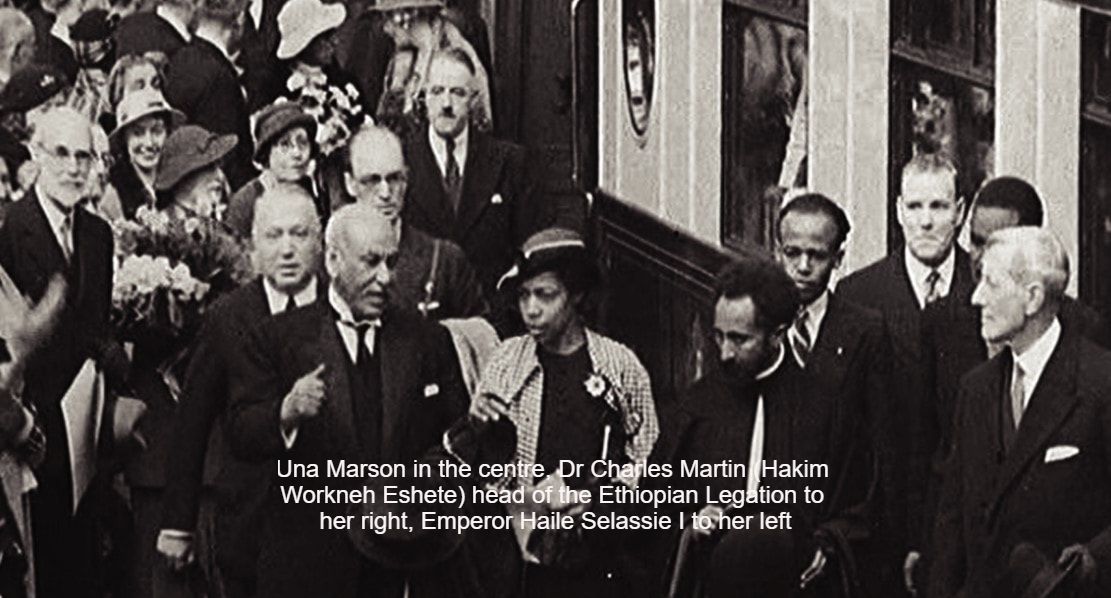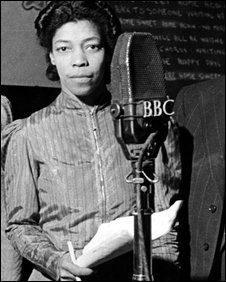Three women for Ethiopia
Una Marson
Una Marson, Jamaican poet, playwright and broadcaster, moved to London in 1932. She lodged in Peckham with fellow Jamaican Harold Moody, chair of the League of Coloured Peoples. In 1935 Una served temporarily as personal secretary to Marcus Garvey (who was resident in the UK at the time) and wrote occasional pieces for his Black Man newspaper.
Una became a passionate advocate for the Ethiopian cause. The summer of 1935 found her at the information section of the League of Nations in Geneva. There, Una made contact with Tekle Hawariat of the Ethiopian delegation who, while applauding her offer to be of use in Ethiopia, directed her instead to return to London in order to work as a secretary for the Ethiopian Legation.
Una was also at Waterloo station to greet Emperor Haile Selassie I upon His arrival in June 1936 and was moved to tears at the sight. She met the Emperor again three weeks later and travelled once more to Geneva with Him to sit in the diplomatic gallery as He made His historic address to the League of Nations.
Una became a passionate advocate for the Ethiopian cause. The summer of 1935 found her at the information section of the League of Nations in Geneva. There, Una made contact with Tekle Hawariat of the Ethiopian delegation who, while applauding her offer to be of use in Ethiopia, directed her instead to return to London in order to work as a secretary for the Ethiopian Legation.
Una was also at Waterloo station to greet Emperor Haile Selassie I upon His arrival in June 1936 and was moved to tears at the sight. She met the Emperor again three weeks later and travelled once more to Geneva with Him to sit in the diplomatic gallery as He made His historic address to the League of Nations.

During this time, Una was a member of the International Alliance of Women. By 1938 she had become the first Black female programme maker at the BBC, and was famous for producing "Calling the West Indies" for the BBC Empire Service.
Una's experiences in England - both as a victim of racism but also as a secretary to both Marcus Garvey and the Ethiopian Legation - were perhaps a catalyst for her to take a poetic stand in 1937 for the cause: "Black is beautiful":
Kinky Hair Blues (1937)
I hate that ironed hair
And that bleaching skin.
Hate that ironed hair
And that bleaching skin.
But I'll be all alone
If I don't fall in.
Lord 'tis you did gie mi
All dis kinky hair.
'Tis you did gie me
All dis kinky hair,
And I don't envy gals
What got dose locks so fair.
I like me black face
And me kinky hair.
I like me black face
And me kinky hair.
But nobody loves dem,
I jes don't tink its fair.
